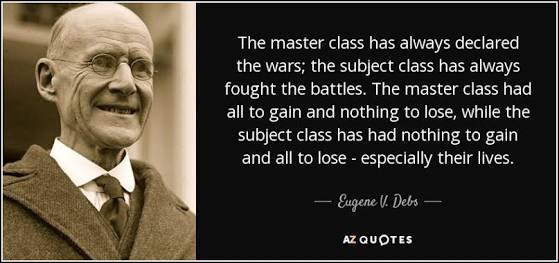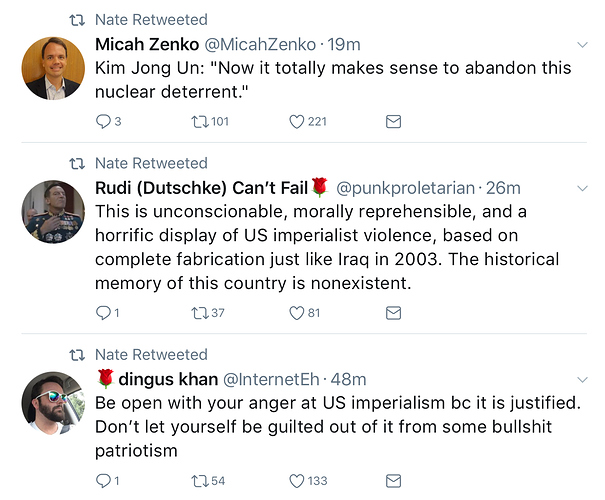Eh. Going a bit too far, there.
In almost all circumstances, sure, fighting a war is the wrong option. Certainly, that’s the case in Syria.
On the other hand, if I were in Ukraine’s position and some other country was marching guns across the border and slicing off large swaths of my own country, the idea that “War is good for absolutely nothing” (to misquote the song) wouldn’t stop me from joining in. If someone else brings war to your doorstep, you’re not obliged to roll over.
However, when you’re initiating a war, bringing it to someone else’s doorstep, then I agree completely. There’s no good reason and no justification, only, as the DSA puts it, “imperialism and the suffering it brings.”
I’m fully in agreement that armed self-defence is ethically justified. Whether the defender is a nation state or not.
I’m also of the view that oppressed people are entitled to pursue justice by any means necessary.
But I don’t think that the DSA tweets contradict that. Even when justified, war will always bring death to innocent people.
The main part that I disagree with is “there is no war that is humanitarian.”
I think that people freed from the concentration camps by the Allies, and slaves that escaped to the North and joined the Union Army, might disagree with that.
There can be occasions, rare though they may be, when fighting a war causes less suffering than not doing so.
As I said, I agree with the sentiment, and the statement as it applies to this specific moment in history, but their message generalized a little more than it should have.
Kinda depends on how you define “humanitarian”.
I’d be reluctant to use that term for even the most justified war. War is, at best, a last-ditch least-bad option.
Liberating Auschwitz was an unambigously good thing, but the Red Army still created a fuckton of human suffering on the way there.
Oh, I agree, and I’d probably be incredulous towards anyone who used “humanitarianism” as their justification for war. Even for the two examples I gave, the reason that the armies were marching were more to do with money and power than the prevention of pain and suffering.
I just see that sentence as a categorical denial that war can ever be the least-bad option, from a humanitarian perspective. And, again, the categorical denial is just a step too far.


Oh, some white kid in my class tried to pull out the “it’s not just about slavery card” and a young lady just smacked his ignorance down. And I always note to my students that the beginning of slavery is the beginning of resistance to slavery in America.
A great thread! I’ll have to pick up that new book of his, as it sounds interesting. I’ve been contemplating changing my class structure to be something more like that - instead of the narrative, focus on individuals in specific times to draw out broader themes.
well, the Germans (both sides apparently) were involved in the chemical weapons attacks of the Iran-Iraq war in the 80s… It wasn’t just us that supported Hussein.
and that’s how you deal with nazis!
France, Germany, UK, USA…they’re all parts of the same empire to me. Some bits have more independence than others, but they all serve white Western imperialism.
USA is analogous to Rome, UK to Roman Greece, etc. Oz is a thoroughly assimilated minor province.



